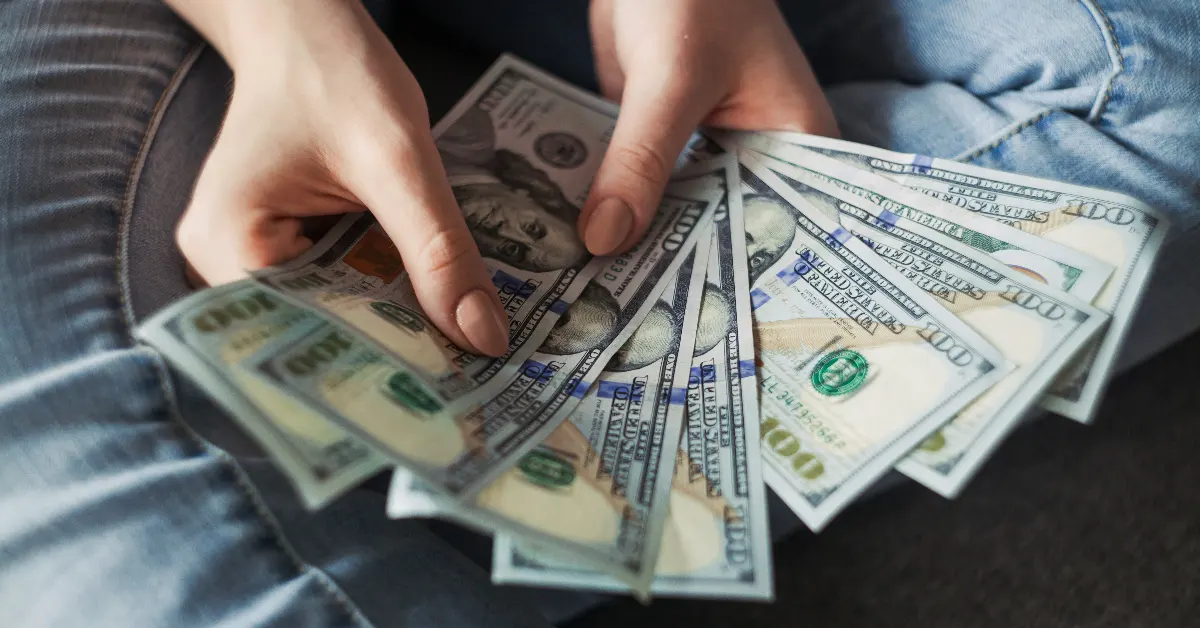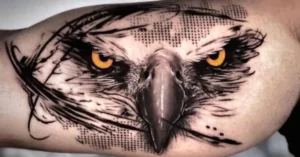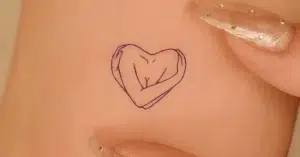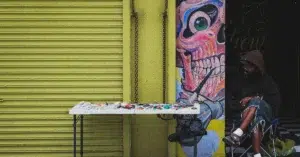The tattoo industry has experienced significant growth over the past few decades. It evolved from a niche subculture to a mainstream art form embraced by people of all ages and backgrounds. Changing societal attitudes towards tattoos and increased acceptance in both personal and professional settings contributed mainly to this transformation.
Accepting tattoos caused a rapid expansion of this profession. According to market research, the global tattoo market was valued at approximately USD 2.03 billion in 2023, and projections state that it will reach $4.8 billion by 2032.
This expansion also spiked interest in tattoo artist jobs. Many people interested in becoming a tattoo artist first ask about a tattoo artist’s salary and whether it pays off. So, in this article, we’ll explore how much tattoo artists make and what affects the overall salary of a tattoo artist.
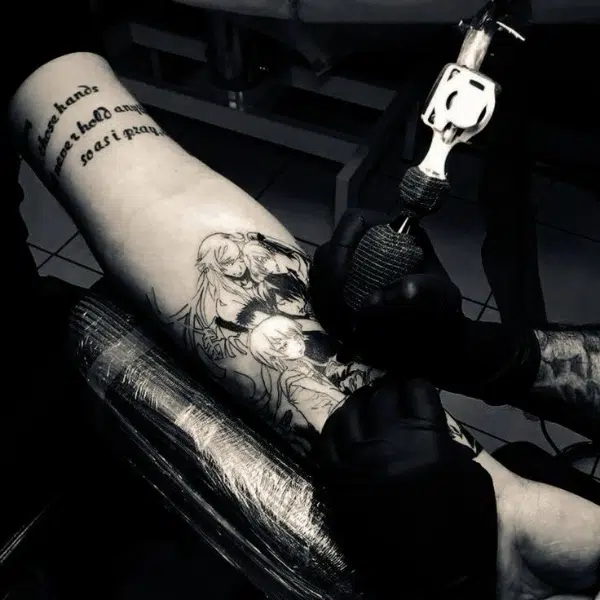
Credit to @𝔞𝔡𝔯𝔦𝔞𝔫𝔫𝔞. | Pinterest
How Much Tattoo Artists Make?
Discussing the average tattoo artist’s salary can be a complex topic. According to official statistics by the Bureau of Labor, tattoo artists are sorted as Craft and Fine Artists. The median annual wage for Craft and Fine Artists was $52,910 a year, or $25.44 per hour. This salary is higher than the national average of $48,060 a year.
However, since this field employs various artists, such as digital artists, jewelry artists, and more, we will focus closely on tattoo artists. According to reports by tattoo artists on Indeed, most tattoo artists, on average, earn $59,220 per year. According to ZipRecruiter, the majority of Tattoo Artist wages currently range between $20.91 (25th percentile) to $38.46 (75th percentile) across the United States.
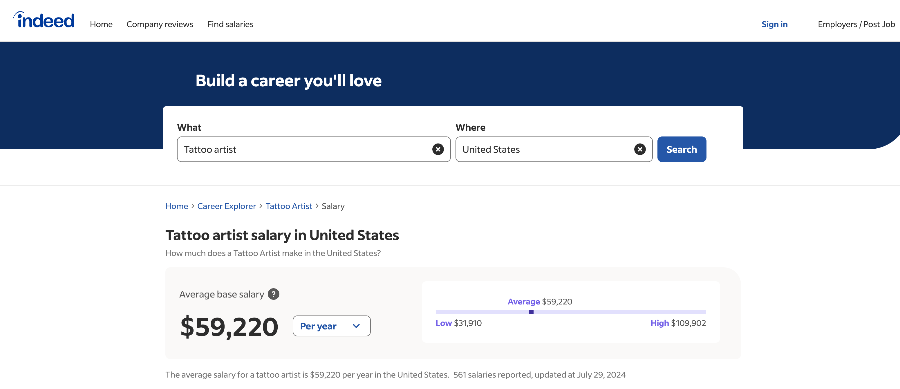
Source: https://www.indeed.com/career/tattoo-artist/salaries
Unfortunately, statistics rarely represent the actual tattoo artist’s salary. As a result, we are seeing many highs and lows.
Based on personal experiences, the lower end, new tattoo artists, typically beginners, make approximately $25,000-$40,000 a year. Apprentices can even make less than $20,000 a year, depending on a shop split model. On the higher end, experienced tattoo artists with an established business and brand can make over six figures or an average of $150,000 a year.
As with any profession, a tattoo artist’s career and salary are very turbulent. The differences in salary raise a series of questions, and most importantly, what affects the tattoo salary.
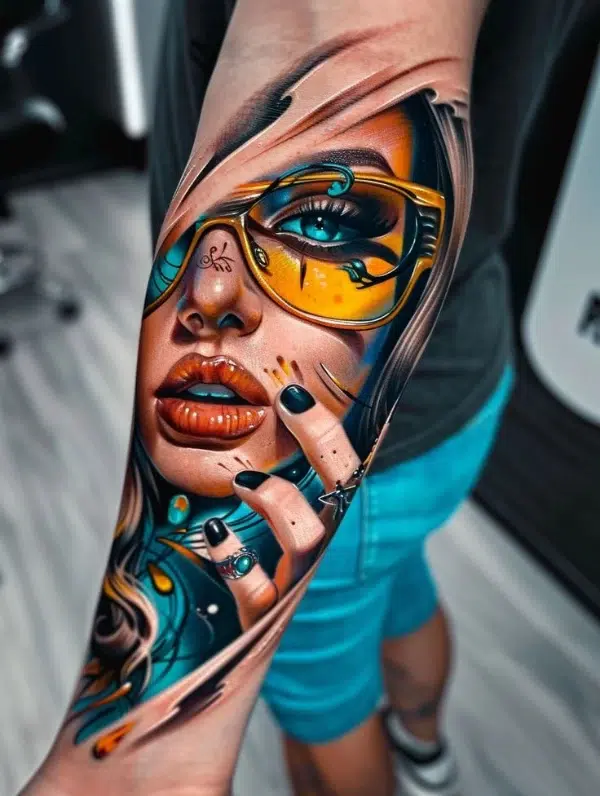
Credit to @Tattoo Lab | Pinterest
How Do Tattoo Artists Make Money?
A tattoo career is a unique profession, and this uniqueness also reflects the salary. The artists can choose one of many payment options or additional sources, and the most common ones are:
- Hourly Rates: Charging your work per hour is one of the most common ways tattoo artists make money. The hourly rate can vary greatly depending on the design the customer chooses. Usually, as the artist’s experience grows and the quality of work improves, hourly rates increase, too.
- Flat Rates: Charging a flat rate for a single tattoo suits clients who want a simple design or a small tattoo. Having a fixed price for a particular tattoo type can let the artist use their time effectively between big projects. But, in some cases, artists combine both flat and hourly rates.
- Tips: Tattoo artists can earn additional money by receiving tips, just like other service industry jobs do. Tips reflect the customer’s appreciation for a job well done and can range from 10% to 20% or more of the total cost of the tattoo, depending on the client’s satisfaction and generosity. Although not mandatory, tips can be a significant source of income for tattoo artists.
- Merchandise: Becoming a renowned artist and having good marketing skills can help you build a brand. You can display your brand or your work on t-shirts, stickers, and prints. Merchandise can also help you showcase your work and serve as an additional income stream simultaneously.
- Owning a Tattoo Shop: This is the end goal for most tattoo artists. Although owning a tattoo shop is profitable, it requires dedication and a lot of hard work. As a business owner, your duties range from managing employees and maintaining the shop to promoting the business to get more people through the door.

Credit to @Nikola Nert | Pinterest
How To Calculate Tattoo Rates
Tattoo artists calculate their rates based on several factors to ensure fair compensation for their skill and time. Even though it can sound complicated, there is a simple formula that can tell you if you are on the right track:
(Desired Annual Income + Overhead Costs) ÷ Number of Hours Worked = Hourly Rate
The primary considerations in pricing your work include the size and complexity of the design and the time required to complete the tattoo. Typically, artists price tattoos by the square inch. Therefore, the larger the tattoo, the more it will cost. Custom designs often incur higher fees due to the additional time spent on planning and sketching. Factors like the use of color, placement on the body, and special techniques can affect pricing.
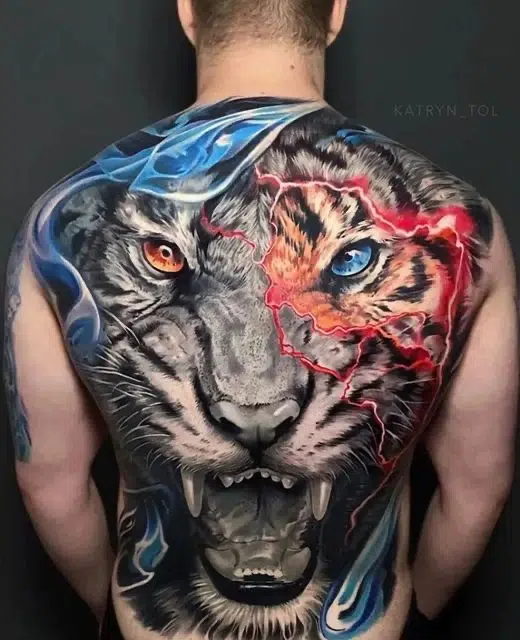
Credit to @tattoo_time_vk | Ins
When setting rates, you should also consider overhead costs. Expected overhead costs are studio rent, taxes, equipment, and supplies. The final goal is to set rates that cover all expenses while maintaining profitability.
As an example, a tattoo artist with an hourly rate of $20 and a base price of $150 would charge $190 for a two-hour tattoo session. Adding a 25% tip from a satisfied customer would bring the total cost to $237.50 for the tattoo, which adds up to $118.75 per hour.
These are individual elements that can affect your payment, and you can control them. But there are more important factors you should consider.
What Factors Affect Tattoo Artist Salary?
There are a lot of numbers popping up when you are searching for the average salary of a tattoo artist. The reason is several key factors affecting your potential earnings as a tattoo artist. These factors include:
- Experience levels
- Split model
- Specialization
- Location
- Networking and Industry
Different from the hourly rates and sources of payment, controlling major factors can be challenging. Yet, they can significantly affect the money you’ll earn by the end of the month. Let’s see how.
Tattoo Salary Based On Experience
As with other professions, experience level plays a significant role in determining a tattoo artist’s salary. Years of experience and expertise can influence your earning potential and career development. Official statistics show several groups based on experience:
- Entry-level and apprentices
- Mid-level tattoo artists
- Experienced artists
As you spend more time in the industry, your skills and expertise grow. Higher skill and more experience also means you can earn a higher salary.
Entry-level And Apprentice
If you are starting fresh from a tattoo course or tattoo school, you will have to consider a tattoo apprenticeship. According to the Alliance of Professional Tattooists (APT), apprenticeships should last at least three years. The way apprentices get paid varies from studio to studio and from mentor to mentor. However, the goal is to develop your skills and get to know the business so money is not abundant.
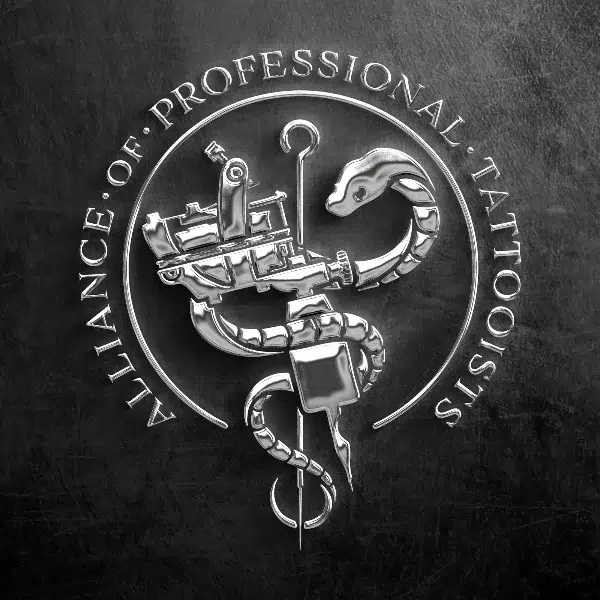
Source: https://safe-tattoos.com/about-us
As a result, you should expect to earn a modest hourly wage or commission, typically ranging from $15,000 to $23,000 annually, depending on location and shop reputation. In some shops, apprentices can earn even less if you consider the costs of rent and equipment. However, the apprentice and beginner numbers are often higher compared to other professions.
Mid-level Tattoo Artists
Mid-level artists with 3-5 years of experience refine their techniques and build a portfolio of work. Their growing reputation can lead to a steady increase in clientele and income.
According to PayScale, mid-level tattoo artists may earn between $30,000 and $60,000 per year, with the potential for more if they specialize in high-demand styles or work in prestigious studios.
Experienced Tattoo Artists
Experienced and established artists with a strong reputation and 5+ years of experience can command higher rates due to their expertise and established client base. They often attract clients seeking intricate or custom designs.
Top artists can earn between $80,000 and $150,000 annually, particularly if they own their studios, participate in conventions, or have a significant online presence. These artists may also benefit from additional income streams like merchandise sales, guest spots, or teaching workshops, so the overall pay can be extremely high. These numbers and reports reach even $340,000.
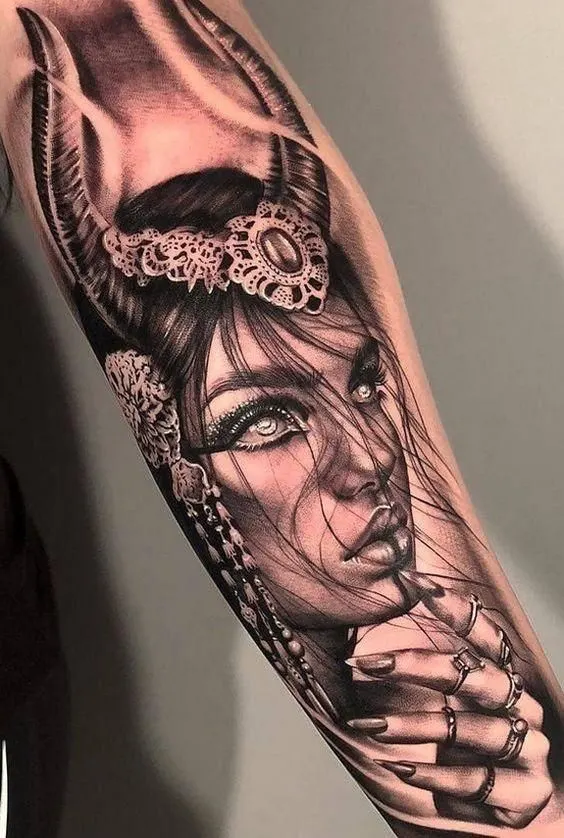
Credit to @Love tips | Hot tricks | Self-love | Life hacks | Horoscope | Pinterest
Split Model
In most cases, you will have to start a tattoo career working in a shop, and your tattoo salary can depend on a split model. Several standard split models in tattoo shops can affect your salary:
60/40: This is the most common model, in which you receive 60% of the payment while the shop keeps 40%. Even though you get the bigger portion of the payment, you must supply all your disposables, such as towels, ink caps, barriers, etc. In some cases, the shop only provides a chair or a station to work from but nothing else. You’ve got to supply all your stuff. 60% is typically the highest rate you can get working in a shop, but you can get away with more if you are a famous artist who can attract new customers.
50/50: This is the next most common split model, in which you split 50% of the payment with a shop. Since the shop is taking half of the earnings, it should supply everything you need to work, including ink caps, cling wrap, Vaseline, clip cord sleeves, etc. Some shops might even supply ink and needles, but many artists have their personal preferences, so they buy their own. For 50% of the earnings, shops should also take care of marketing and promotion, potentially increasing the overall salary by attracting more customers and promoting your work.
40 and less: The model where you only get 40% of the earnings is highly unattractive, and you should only consider it if you are an apprentice. In this case, improving your skills and getting hands-on training from a reputable mentor is more important than salary. Otherwise, as an established artist, you should never settle for 40% and fewer models.
Tattoo Specialization
Mastering a specific set of skills or styles is another factor that should be taken into account when discussing tattoo artists’ earning potential. As a result, specialists often charge premium prices for their tattoos, reflecting their expertise and the time-intensive nature of their designs.
Some experienced artists specialize in specific tattoo styles, such as realism, American traditional, Japanese traditional, or watercolor. The complexity of the style and design can lead to higher earnings due to the uniqueness and demand for their work.
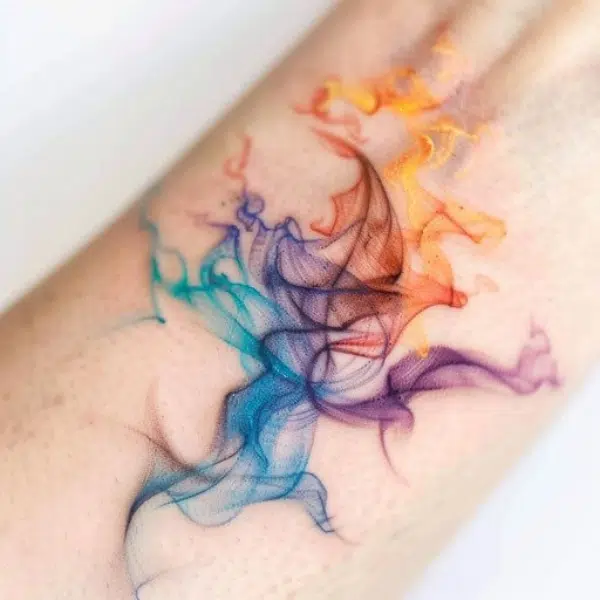
Source: https://www.pinterest.com/pin/336925615891062767/
Location Factors
Location is also vital for a successful tattoo artist studio because it directly affects visibility, clientele, and profitability. The artist can earn more or less based on the state and city in which they live or even on their location in an identical town.
Salary can highly vary based on the supply and demand of a specific area. For example, a studio located in a high-traffic area, such as a busy urban center or popular neighborhood, attracts more walk-in customers and enhances brand visibility.
The surrounding demographics also play a crucial role. Being in an area with a strong tattoo culture or artistic community can attract clients who value tattoo artistry.
Meanwhile, a location with fewer tattoo studios can reduce competition and allow a studio to establish itself as a go-to destination for tattoos in the area. In an area with lots of tattoo studios, on the other hand, a unique location or a distinct brand identity can help a studio stand out and attract clients looking for specific styles or experiences.

Cost of Living
Rent and operational expenses vary by location, impacting profit margins. Studios in trendy or luxurious areas of large cities, such as New York, Los Angeles, or Miami, can set higher prices, attracting clients willing to pay for quality and unique designs. A client base in rural areas with a smaller population might mean lower earnings, but operating costs such as rent and utilities may also be lower.
Another example is Europe. Western European capitals like London, Paris, and Berlin have higher living costs but also higher demands and, therefore, tattoo salaries. Eastern European countries have lower living costs but typically lower overall salaries. So, the goal is to find a sweet spot between the cost of living, demand, and tattoo salary.
Top Paying States For Tattoo Artists
As noted, some states pay better than others. The location factors are very different, such as tattoo culture, presence of shops, and more. According to Indeed, the top 5 paying states for tattoo artists are:
- District of Columbia: $90,530 per year
- New Jersey: $89,690 per year
- Vermont: $82,070 per year
- New Hampshire: $81,460 per year
- Connecticut: $80,647 per year
If your goal is to maximize your salary, consider some of these states as your starting point. However, keep in mind that these numbers are based on tattoo artist reports and are highly dependent on other salary factors we mentioned in the article.
Top Paying Cities For Tattoo Artists
According to ZipRecruiter, the top 5 paying cities for tattoo artists in the US are:
| City | Annual Salary | Monthly Pay | Hourly Pay |
| San Buenaventura, CA | $135,137 | $11,261 | $64.97 |
| Berkeley, CA | $135,001 | $11,250 | $64.90 |
| Renton, WA | $131,202 | $10,933 | $63.08 |
| Santa Monica, CA | $130,153 | $10,846 | $62.57 |
| Bailey’s Crossroads, VA | $127,890 | $10,657 | $61.49 |
Although not on a list of the top-paying states, several cities in California have average salaries significantly higher than the national average. However, once again, the numbers are based on reports of tattoo artists working in these cities. Still, the salary depends on other factors such as experience, payment model, or location of the shop, so you shouldn’t solely depend on these numbers if looking for the highest salary.
Networking And Tattoo Salary
Networking and social influence are additional factors that can highly impact the tattoo salary. Nowadays, developing a business without proper social skills and networking abilities is almost impossible, and the tattoo industry is no exception.
Experienced artists often mentor newcomers, connect with other professionals, and participate in industry events. Building relationship and connections further enhances their reputation and income potential.
Established artists may collaborate with brands, participate in TV shows, or engage in social media partnerships, providing additional income opportunities. Working with celebrities, for example, often means increasing your hourly rates tenfold as they spare no expense to get the best service and frequently require special treatment.

Source: https://www.paramountplus.com/shows/ink-master/#ftag=PPM-18-10caf1b
How To Maximize Your Tattoo Salary
Understanding the factors that affect the average tattoo artist’s salary is crucial in knowing whether your work pays off. If you feel like you can earn more, here are several tips on how to maximize your tattoo salary:
- Follow the trends and improve: Working on continuous training and skill development can yield higher hourly rates. Research shows that tattoo artists who attend workshops or seminars to learn new techniques or styles can improve their earning potential.
- Build a strong portfolio: A diverse and impressive portfolio of work attracts more clients. Websites, catalogs, and social networks with professional photos showcase a professional approach and appearance. As a result, clients are willing to pay higher rates for quality tattoos.
- Talk to clients and provide customer service: Tattoo artists who prioritize customer service and communication skills frequently see an increase in repeat business and referrals from satisfied clients. Positive feedback or a willingness to work on client complaints leads to better satisfaction and higher hourly earnings.
- Optimize and organize your work: Optimizing your workflow and time management can increase your hourly earnings. While each tattoo is unique, carefully planning your time and clients can help you use your time better and maximize your salary.
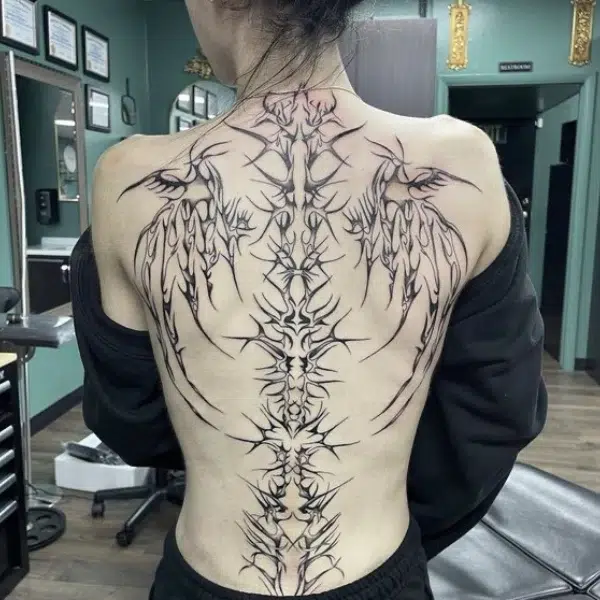
Credit to @ludmila | Pinterest
Not A Quick Buck
A tattoo artist’s salary is a complex topic that can depend on various factors, most of which you cannot control. So, while entry-level artists might start with modest earnings, their income potential increases significantly with skill development and reputation building.
The choice of payment structure also plays a crucial role in determining an artist’s financial success. Furthermore, the tattoo industry offers additional earning opportunities through tips, merchandise sales, and guest appearances at conventions.
Aspiring tattoo artists should focus on honing their craft, marketing themselves effectively, and making strategic career choices to maximize their income potential.
Although you cannot control them, by understanding these diverse factors that influence earnings, both new and experienced tattoo artists can navigate the industry successfully and work towards achieving financial stability and artistic fulfillment.
As the industry continues to grow, so too does the potential for talented and dedicated artists to thrive professionally and financially. So, overall, passion, persistence, and professionalism are critical to a successful tattoo artist career.
